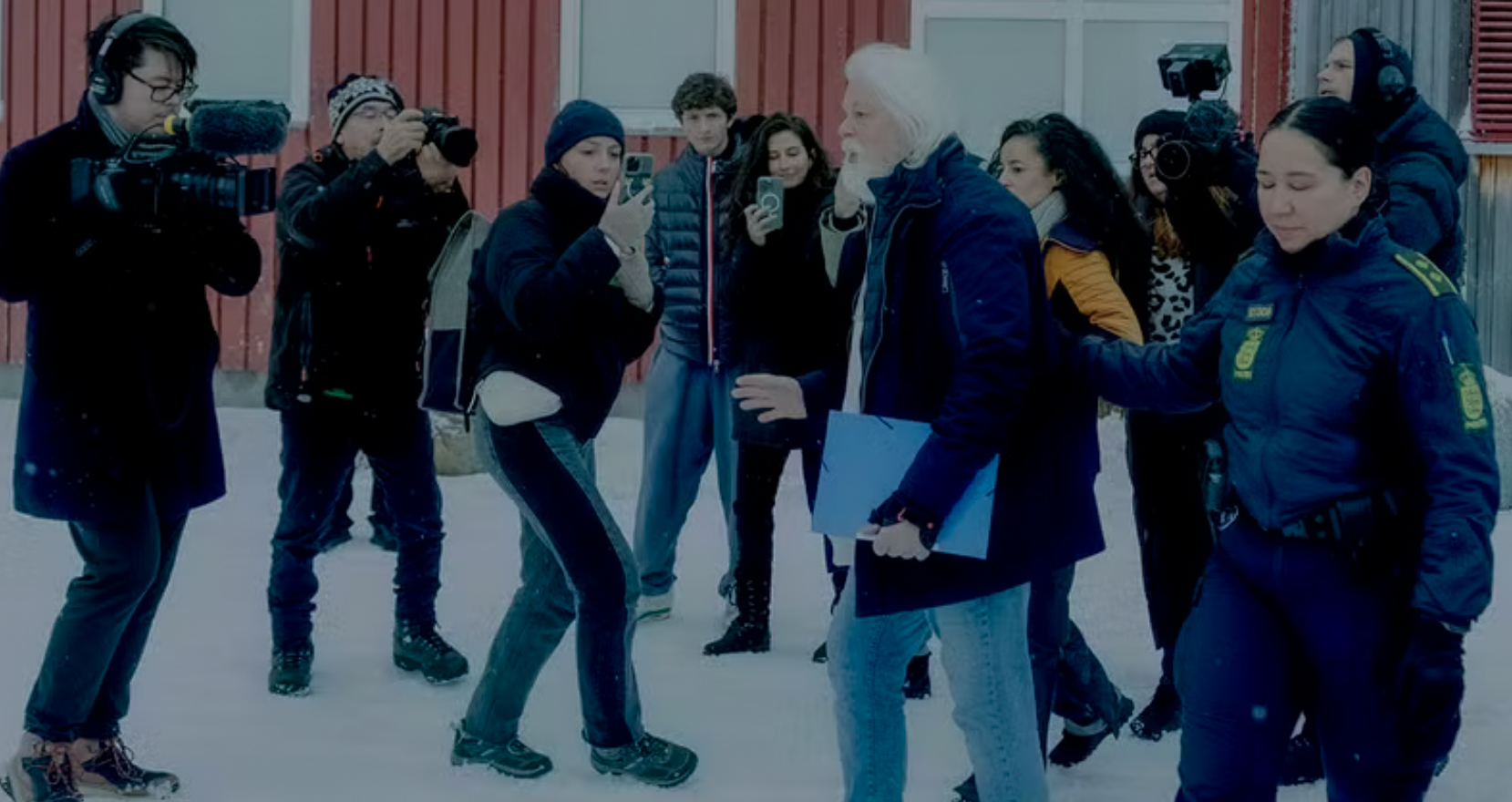14 November 2024 (CCC – Ecoceanos) – On November 13, Judge Lars-Christian Sinkbæk extended Watson’s pre-trial detention for the fifth time, adding another three weeks and delaying the next hearing until December 2, the date on which the Canadian-American environmentalist will turn 74 years old. This decision raises concerns about the fairness of the proceedings surrounding Watson’s case, particularly considering that the maximum duration for pre-trial detention, according to Danish Penal Code, is generally up to four months and can only be extended in cases of serious offenses such as acts of terrorism, which suggests that his situation might be politically manipulated.
However, for the Greenland court, Watson’s continued detention is deemed not disproportionate. This is despite Danish legislation aiming to protect individuals’ rights from being compromised by excessively prolonged pre-trial detention. Following the hearing, Finn Meinel, Watson’s defense attorney, stated, “Today we argued that keeping Paul detained is disproportionate, but now the decision rests with a higher court.” Meinel emphasized that Watson’s detention may be more influenced by political factors than by the actual severity of the charges against him.
Watson faces extradition to Japan due to alleged incidents that occurred in 2010 at the Southern Ocean whale sanctuary, where the Japanese whaling fleet carried out the largest illegal whale slaughter in history. According to the Japanese government, Watson injured a crew member during the deployment of a foul-smelling device. Notably, the presiding judge once again refused to review key evidence in Watson’s defense, which demonstrates the falsehood of this accusation[1], effectively blocking his right to a comprehensive defense and undermining the fundamental principles of a fair hearing.
The ongoing denial of Watson’s fundamental right to defend himself poses urgent questions regarding the integrity of the Danish judicial system, and as a member of the European Union, its implications for the human rights of environmentalists both in Europe and globally.
Elsa Cabrera, executive director of the Cetacea Conservation Center, argues that the questionable conduct of the Danish judicial system underscores the urgent need for France to respond swiftly and favorably to Watson’s application for political asylum and his request for French citizenship. “It is essential to prevent the dangerous precedents that Denmark is setting in this case from being replicated across Europe. By accepting these requests, France would not only be protecting Watson, but it would also be preventing the ominous progression in Europe of practices that are more fitting for the Middle Ages than the 21st century,” asserted the environmentalist.
Meanwhile, Juan Carlos Cárdenas, director of the Ecoceanos Center, noted, “Paul Watson is a political prisoner who is being detained under the guise of ‘pre-trial detention’ as a punitive measure to silence ocean and whale defenders.” The veterinarian called on citizens and socio-environmental movements to continue increasing support for the international campaign to free Paul Watson and to prevent Peter Hummmelgaard, Denmark’s Minister of Justice, from attempting to extradite him, risking his life in a Japanese prison once public attention and international citizen pressure wanes.
———-
[1] Also known as “enzai” or “冤罪,” which means “wrongful imprisonment” or “false accusation,” this term describes a situation in which a person is tried or convicted wrongly for a crime they did not commit.



